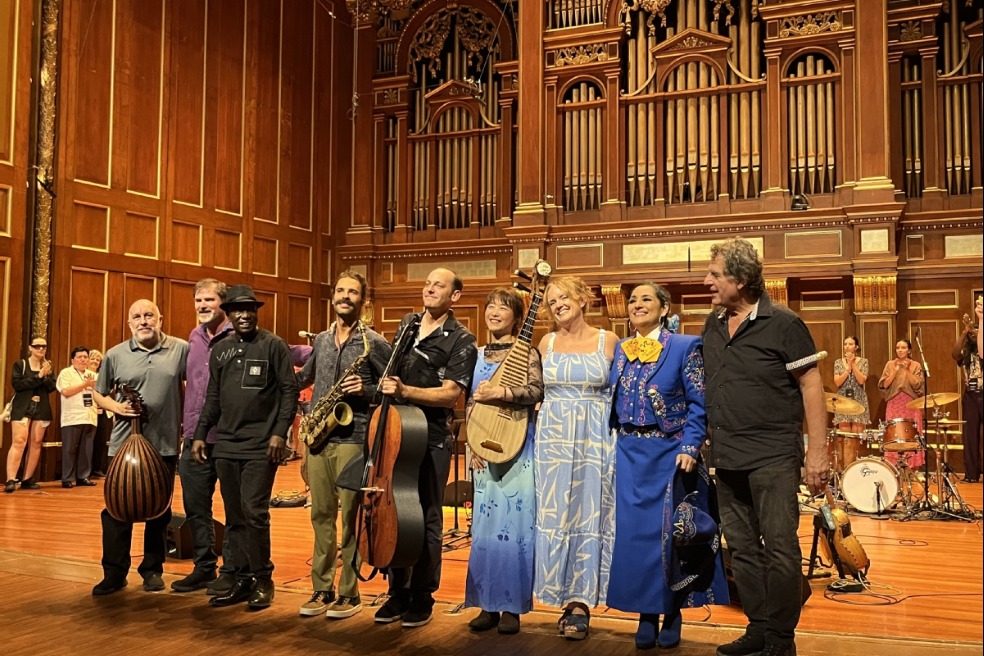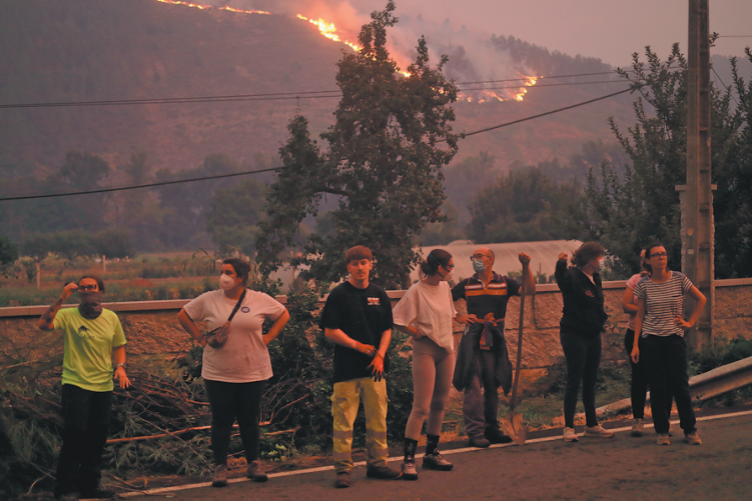California city tests giving 125 people $500 a month


One of the Democratic presidential hopefuls says he'd give every American $12,000 a year. In Stockton, California, 125 people have been getting $500 a month free since February.
Maggie Denang, a 63-year-old retired nurse, is one of the recipients of the Stockton Economic Empowerment Demonstration (SEED), a pilot program to provide insights on whether a long-term basic income helps lift residents out of poverty.
"I was shocked. It has never happened to me in my life. It's a surprise, a good surprise," Denang told China Daily of her inclusion into the program.
The stipend is distributed monthly to randomly selected residents — who earn at or below the median household income of $46,033 — through prepaid debit cards. There are no work requirements or restrictions on how the money can be spent.
The extra money "means a lot to our family. It helps me a whole lot," said Denang. She and her husband, who is disabled, live in an apartment. They rely on her pension.
"It helps with my rent, electricity, medications and food," said Denang. "It's made my life a lot easier for the last few months."
The privately funded SEED program was spearheaded by Stockton Mayor Michael Tubbs and partly financed by the nonprofit Economic Security Project, a network focused on basic income in the US.
Two researchers, Amy Castro-Baker at the University of Pennsylvania, and Stacia Martin-West at the University of Tennessee-Knoxville, also received a $680,000 grant from the Robert Wood Johnson Foundation to evaluate the US' first city-led guaranteed income pilot program.
"The nature of the American economy is changing, such that the average worker can no longer count on earning the same paycheck week to week. Our current forms of assistance only allow families to access specific resources at one time, like housing vouchers or food assistance," said Castro-Baker and Martin-West in a joint email to China Daily.
"Guaranteed income gives families the flexibility needed to respond to volatile financial situations and prioritize spending based on their needs," said the researchers. "Our goal is to determine if and how guaranteed income works so it may be scaled out. It is an exciting time for all forms of unconditional cash, including guaranteed income and universal basic income."
Universal basic income is an idea dating back to the 18th century. In the 1960s and 1970s, the US and Canada conducted several guaranteed-income experiments. Since the 1980s, the concept has expanded to many countries around the world.
The idea has new momentum thanks to the 2020 US presidential race. Candidate and tech entrepreneur Andrew Yang advocates for $1,000 monthly universal basic income for all American adults over the age of 18, regardless of one's work status or income. He argues that automation is causing the loss of millions of jobs in the US.
The idea of universal basic income has been embraced by the high-tech industry for fear that automation and artificial intelligence would take over human jobs and collapse the society. The supporters include Facebook founder Mark Zuckerberg, and Tesla and SpaceX CEO Elon Musk, who came out in support of basic income.
But critics are concerned that the unconditional income would lead to less incentive to work. Barry Broad, chair of the California's Employment Training Panel, said the concept is "a surrender to a kind of grim Dickensian view of the future. It's naive to think universal basic income is going to pay the bills. It's going to at best give people a poverty wage," he said.
Yang's plan has been estimated to cost $2.8 trillion per year. He would impose a new tax on businesses' goods and services, while shrinking some other government assistance programs. Yang did not respond to an interview request.
The key difference between universal basic income and guaranteed income is that the former is available to everyone, whereas the latter may be targeted to a specific subpopulation, such as women with children, or a geographic area, according to Castro-Baker and Martin-West.
Compared with "trillions and trillions of dollars", guaranteed income is more "doable", said Chris Hughes, co-chair of the Economic Security Project, during a discussion at Harvard Kennedy School's Institute of Politics in 2018.
Guaranteed income is "evidence based" and "what's still missing is the political will, so that people believe it's possible, doable and desirable to create an income floor", he said.
Stockton, in California's Central Valley, has a population of 321,000. The city was once known as the foreclosure capital of America and the nation's largest city, before Detroit, to declare bankruptcy. It is now ranked the second most fiscally solvent city in the US.
"Unfortunately in the United States there is a long and horrible history of poverty being stereotyped, and there's a lot of gender and racial stereotype attached to it," said SEED director Sukhi Samra. "Our economy isn't working for anyone, particularly for the most marginalized, people of color, and women of color."
































